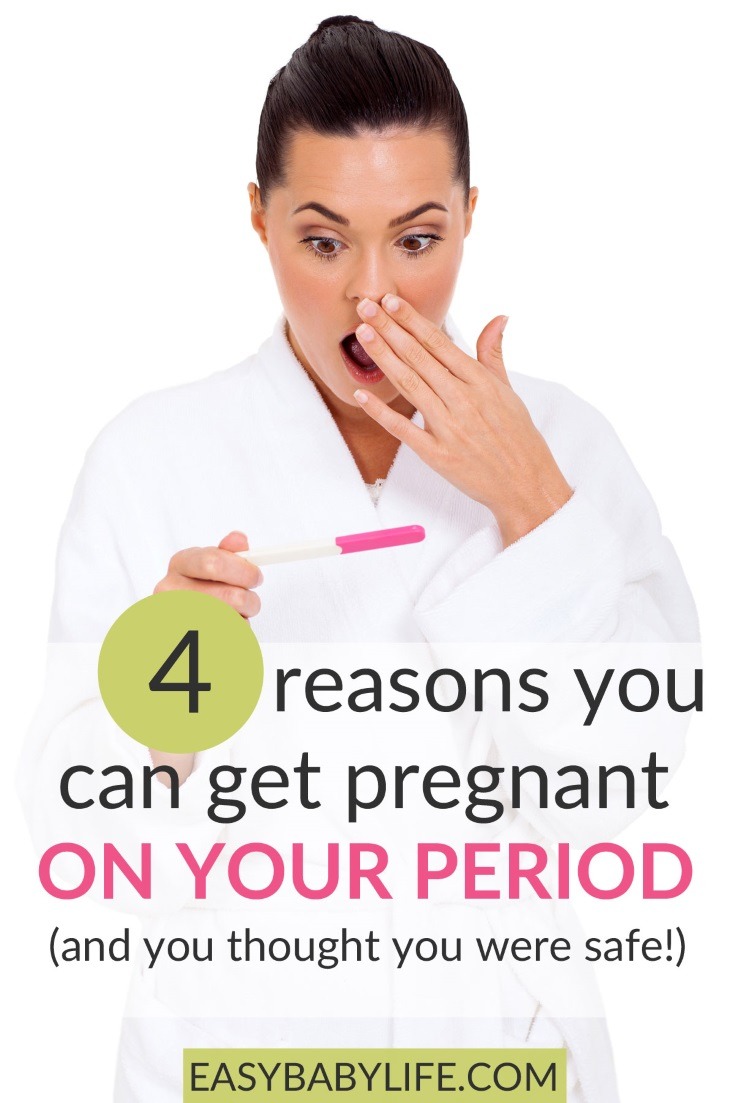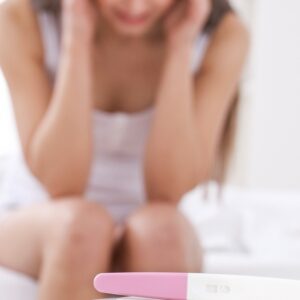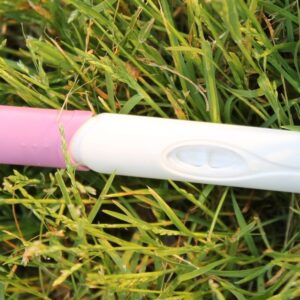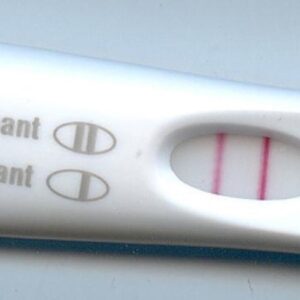Wondering if getting pregnant on your period is possible? Likely?
Many people don’t think that it can occur, but think twice! A woman I recently talked to knew for sure that she and her spouse made love only once and during her period. She recently gave birth to their fourth child…
So how can this happen? We explain it all here.
Getting Pregnant On Your Period
Conception 101
First of all, you need to understand how conception actually works before you can understand how getting pregnant on a period is actually possible.
When you go through your menstrual cycle, your ovaries are getting an egg ready to be released. Then, when you ovulate, that egg is released into the fallopian tubes. Usually, the average menstrual cycle lasts about 28 days, but some can have cycles that are shorter, while others have other cycles.
Sometimes, your menstrual cycle can even vary in length from month to month. Sometimes it may be a bit shorter, and sometimes it can be a bit longer.
Ovulation usually takes place about 14 days before your cycle ends, which is about 14 days before the next period occurs. Of course, ovulation can vary as well each month because of the balance in your hormones. Even those who have periods on a regular basis can have a fluctuation in their ovulation time.
No matter when ovulation occurs, the egg goes into the fallopian tubes and starts on its way toward the uterus. If there are sperm available, then fertilization can occur while in the fallopian tubes.
After ovulation occurs, there are only about 24 hours of time when you can conceive. If your egg does not get fertilized, then it is shed in the next period you have.
However, if you do conceive, then the fertilized egg goes into the uterus and embeds in the lining of your uterus and develops into a baby. In such a case, the week of menstruation is actually counted by your midwife as your first week of pregnancy.
If you are not sure when your ovulation usually takes place, make sure you find out! Get yourself a good ovulation prediction kit immediately.
You can read about the most common ovulation symptoms here.
So, How Is It Possible to Get Pregnant During Period?
So, you may be wondering how it is actually possible to get pregnant while you are menstruating. Here are a few ways that this can occur:
1. Sperms that have a long life
Getting pregnant during your period can occur if there are sperms that have a long life. In most cases, sperms are only able to live inside a female for about 3-4 days when intercourse occurs.
However, there are times when the sperm can last from 5 to 7 days at one time, and they still may be able to fertilize the egg. This means that if you have sex while you are having your period, the sperm could live long enough to be alive when you ovulate, and conception could occur.
2. Short menstrual cycles
Usually, ovulation occurs about 14 days before your next period, no matter how long your period is. So, if you have a short cycle, it is possible that you will ovulate while you are still having your period, which makes getting pregnant possible. If you have sex during your period or even right before it occurs, pregnancy can occur.
3. Ovulation spotting
Sometimes, spotting occurs during ovulation, which makes a woman think she’s having her period. Often, this leads a woman to think she got pregnant when she had her period.
4. Longer Menstruation
If you have longer menstruation, getting pregnant on your period is also possible. While most people only menstruate from 3-5 days during a one-month cycle, some people may bleed 7-10 days at a time. This means that if you have sex while still having your period, getting pregnant could be possible.
I hope this makes it totally clear that sex during menstruation is not “safe” if you want to avoid pregnancy.
Read Next
- Charting Basal Body Temperature: Ovulation, Pregnant or Not (Free Printable Included)
- 10 Ovulation Symptoms You Should Know to Get Pregnant (or Not)
- Breastfeeding As Birth Control: How-to, Safety, Pros, Cons

Paula Dennholt founded Easy Baby Life in 2006 and has been a passionate parenting and pregnancy writer since then. Her parenting approach and writing are based on studies in cognitive-behavioral models and therapy for children and her experience as a mother and stepmother. Life as a parent has convinced her of how crucial it is to put relationships before rules. She strongly believes in positive parenting and a science-based approach.
Paula cooperates with a team of pediatricians who assist in reviewing and writing articles.







